Writers Talk Writing: Angelique Migliore
David Dixon • August 4, 2020
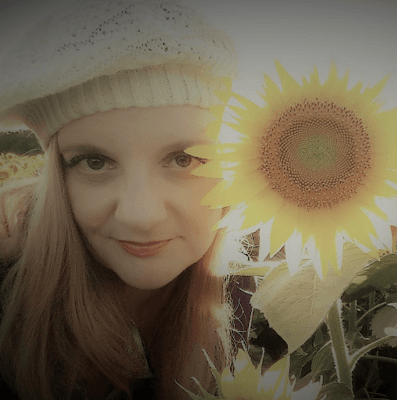
One of the things I try to do as a writer is to read widely and to learn something from every other writer I can find. Fortunately, the writing community is strong, and there are plenty of people willing to share with me and teach me new perspectives and techniques. As part of that community, I’m doing a series of occasional interviews with other writers across a variety of markets and genres.
My first interview is with Angelique Migliore, who has published three novellas
with Tirgearr Publishing. You can find out more about her at AngeliqueMigliore.com
or by following her on Twitter @AngeliqueJots. Her books are available from Tirgearr or Amazon.
I hope you enjoy our chat and learn some things too, just like I did!
DAVE:
Angelique, you've published in the romance genre, but I also know you write other genres as well. What do you find unique about the writing in the romance genre as compared to other genres? What is something writers like myself could learn from the romance genre?
ANGELIQUE:
I'm not sure how much is "unique" about Romancelandia, as we like to call it, other than the sheer amount of shit we take from all other genres and the literary world. Which is funny because once upon a time, every other genre had their day of being the butt of all jokes of the publishing world. But I digress, just as I’m getting started.
Writing a Romance is writing about the relationship first and the world around it--whichever time period or setting--is secondary. And this may seem constricting, but there's actually a great deal of freedom to it. Romances are character-driven stories, and many incorporate social issues such as fighting problems like racism, the patriarchy, fat-shaming, homophobia, you name it. They generally tend to be feminist in nature (even the recently-written historical ones). If you haven't picked up a Romance lately or ever, I suggest grabbing one written within the past five to ten years.
What could you learn? Go deeper into your character's motivations, and let their perception of the world shine through in all aspects of their life: their dialogue, their fighting techniques, their favorite foods, their preferences in the bedroom, etc. And never, ever let anyone disrespect your writing. Fight for your right for fair treatment.
DAVE:
That’s a good point about understanding a character’s motivations and not being afraid to fight for fair treatment—for yourself or the characters. One of the things I like most about your work is the diversity of your characters--in terms of race and background and disability. How do you go about creating them?
ANGELIQUE:
Like I mentioned, all of my stories, whether Romance or another genre, are character-driven. I have a tendency to "see" my books from beginning to end before I ever start writing them. (Yes, I am a plotter although plots do change.) I aim for this character who could tell this story the best. I write with a close point of view--sometimes first-person, sometimes third, but always close. And I aim for putting the right character in the correct setting to either compliment or oppose the other characters. I will thoroughly sketch my characters based on scenarios such as, do I need this person to blend in with the community, or do I need a fish-out-of-water scenario, etc. and who would that look like?
DAVE:
What else are you working on? Do you have anything else coming out soon or planned?
ANGELIQUE:
I have recently finished my third novella for Tirgearr's City Nights Series, and although they were an incredible amount of fun to write, I'm switching gears now. I'm currently editing and writing a mythological fantasy trilogy based on a combination of The Book of Job, one of the stories from the Dead Sea Scrolls, and a couple of historic characters and mythological races. I have had two requests to read the full manuscript of the first book plus synopses of books two and three, so hopefully, this will be my next big project to share with the rest of the world. And I have five more series planned. Stay tuned!
DAVE:
That sounds awesome! That’s a unique basis for a fantasy trilogy. The Book of Job, unlike, say the Book of Revelations, rarely makes an appearance in fiction. How did you get the inspiration?
ANGELIQUE:
I have a degree in Religious Studies, so it’s safe to say I’ve read a fair amount of sacred texts. In the very first chapter of Job, we are introduced to a bunch of “heavenly beings” (also called “sons” in some translations). We learn that they are presenting themselves to the Lord in what is basically a heavenly court. In strolls Satan, one of these beings/sons. Let’s just make a full stop right there, because no one who has read Job remembers that part. They only remember the hell Satan put Job through. But still, there’s two big things here. One: Satan clearly has access to heaven full time and can come and go whenever he pleases. Two: there’s a heavenly court! Therefore, the idea that God is hanging out up in heaven all by himself without peers/contemporaries is a bit unqualified. I take this notion in my Mystics of the High Council Series and run with it.
DAVE:
I love that idea, and I’m restraining myself from going off on a long tangent here about history and Carl Jung and Campbell’s theories. Anyway, thanks so much for background there. This is going to be a series to watch, and I can’t wait to see where you take it. Sometimes it’s easier for me to see when other people have a great idea than it is to evaluate one of my own. It can be hard for me to know when a story really works and when it doesn’t on my own, which is where beta-readers and editors come in. But I’m always looking to improve, so I can send my best work out and save them work. What is your editing and beta reading process like?
ANGELIQUE:
First of all, I'm a bit of a perfectionist. I won't send anything out that is not as good as I can get it on my own--time permitting, of course. I have two of the best critique partners on the planet who hold nothing back, and a handful of trusty beta readers. I deal with my critique partners first, and then after those edits, I'll send it out to beta readers. On the rare occasion I feel a problem with a story, but don't know which direction to take it, I'll send out an alpha version, but I don't like to do that, and it'll only go to my critique partners because they know me and my writing the best.
DAVE:
Critique partners who can offer you good advice and aren’t afraid to tell you what doesn’t work are worth their weight in gold. Many who are writers are also good sources of advice. What's the best piece of writing advice you've ever gotten?
ANGELIQUE:
Write your first draft all the way through (don't stop to edit). Because by the time you write THE END, you are already a better writer. Now, go back and re-write your first three chapters.
DAVE:
I’m laughing because I am a compulsive real-time editor, so I don’t follow that advice at all! Different strokes for different folks. That said—I always have to go back to the first part of anything I write, whether it’s a short story or a novel—and rewrite it anyway, for exactly the reason you said.
Angelique, this has been a blast, and I appreciate the opportunity to get some good advice and new perspectives. I’m really looking forward to reading your latest from Tirgearr, and hoping for great things from the Mystics of the High Council Series.
Readers, please go check out Angelique’s romance series and sign up for her newsletter
and follow her on Twitter
so you can keep up with what she’s doing moving forward!
Again, Angelique, thanks a ton for sitting down (virtually) and talking with me.
ANGELIQUE:
It was an absolute pleasure, Dave! I’m always up for a chat.
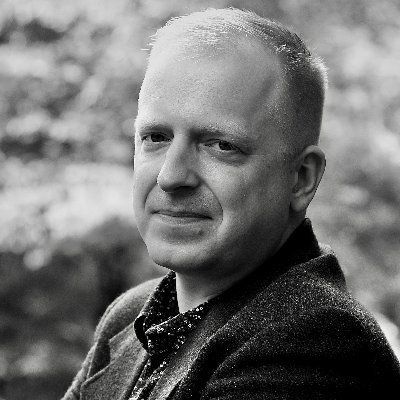
One of the things I try to do as a writer is to read widely and to learn something from every other writer I can find. Fortunately, the writing community is strong, and there are plenty of people willing to share with me and teach me new perspectives and techniques. As part of that community, I’m doing a series of occasional interviews with other writers across a variety of markets and genres. My interview today is with another pulp author who writes in the Weird Western genre, who has self-published his first novel, His Ragged Company: A Testimony of Elias Faust , available at Amazon. You can find out more about him and his writing at his website , or by following him on Twitter at @ViolenceObscene . DAVE: You write in the Weird Western genre, and His Ragged Company is part pulp Western and part Lovecraftian occult mystery. How did you come up with the idea and what attracted you to the Weird genre? RANCE: I don't know if there was a specific time where the idea struck me at once, but rather, it sort of hit me over and over in the jaw over the course of a few years. Originally I was just writing a western. I'd gotten burnt out on my attempts at fantasy and science-fiction, and wanted to write something steeped in genre tropes, so I thought I'd lean back into something inspired by what I'd grown up with: namely, the stories told in radio dramas. Granted, I was an 80s baby, but my Dad was born in '31, so I came to love a lot of what he did. I enjoyed the adventure of The Lone Ranger and the mystery and oddities of The Shadow. These tales grew into popularity right on the heels of the Conan stories and The Hobbit, so looking back, they went together hand-in-hand. Halfway through writing a series of short, low-stakes Western stories, I realized I missed playing with the unknown. Magic started subtly finding its way into the world, and then eventually took it over—hopefully without abandoning too much of the reality that I like in there, too! DAVE: I think that's really neat, writing in one genre then switching to another. My dad isn't nearly as old as your father, but I too greatly enjoy the early-to-mid-century pulp feel, although I trace my work back more to Raymond Chandler and Dasheill Hammett than to the era's radio dramas. That said, they both spring from the same sort of collective well of culture, where square-jawed heroes matched against dastardly villains. What other writers, in the genre or out, do you admire? RANCE: I have to be fully honest: I'm not too well-versed in cosmic horror or even Weird Westerns in general! As far as other influences, Robert Parker wrote dialogue that snapped and seemed simple but had so much power, and his characters could say one word and tell a whole damn story. Ralph Ellison's Invisible Man is sublime and surreal and frighteningly earthbound. Of course, Jim Butcher's The Dresden Files really shaped my appreciation of what a long-lasting, multi-book series could achieve. Sometimes I think it's the lack of admiration that drives me to want to write in these genres. Lovecraft developed some wild ideas, but he was a damn racist mess, and a lot of Wild West stories are regularly filled with really problematic tropes that highlight the supposed chivalry of colonization while avoiding the real issues: that pioneers, frontiersmen, and white Americans were viciously destroying land and culture to claim it as their own. Sure, I wanted to write an adventure that could have its Saturday morning fun, but also recognized its roots and could try to subvert the more problematic elements of these genres. DAVE: Lovecraft is definitely one of those figures whose genius we can admire even while we recognize that as an actual person, he was no one to emulate, that's for sure. He did leave a big mark on the Weird genre, though, that's for sure. A reminder that people have many sides, not all of them admirable. Good characters are often the same way. When it comes to your characters, where do you start building them? RANCE: You give me too much credit, presuming I plan too much beforehand! A lot of the time, they honestly just come into their own: I start with a basic idea of what they want and, hopefully, it's in contradiction with what they actually get. DAVE: Is that how it worked for His Ragged Company ? RANCE: Yes, the protagonist Elias Faust doesn't have a damn clue what he wants because I didn't have a damn clue what he wanted, so he floats around without much of a personal purpose until one's given to him by forces beyond his understanding. Most of their wants are pretty ground-level: Grady Cicero wants to satisfy his base urges with drinking and pleasure; the fighting-pit proprietor, Miss Garland, wants to make some good money. What I came to find was that a lot of those desires fled them when they came into contact with creatures, powers, and ideas beyond their understanding. So I got to learn about each of them brand new: what would they want in this new world where the rules aren't quite right? What would they do to survive at all costs? Who would they be loyal to or screw over to get it? DAVE: I know all those questions didn't get answered for everyone at the end of His Ragged Company , so where do Elias and crew go from there? What are you working on, and how long will the series be? RANCE: Oh, you mean when I'm not cultivating this lifelong love-affair with anxiety? Right now, I'm piercing together the follow-up to His Ragged Company, which follows two other characters from the messed-up little town of Blackpeak as they come to terms with the aftermath of the first novel. Unlike His Ragged Company , it's written in third-person, so I'm hoping people are willing to take a little bit of a different ride. But truthfully, I have no idea how long the series will go! I originally thought five books, then it turned into a conceptual seven, and then a title for a later one popped into my head. I'll probably be helluva dead by then, so let's not hold our breath. I'd love to at least hit five, though—so we'll see! DAVE: Five is a lot of writing, especially if they're all the size of His Ragged Company— I feel bad for interrupting your writing time! That said, when you're not working on sequels, do you write outside the genre? RANCE: I do, and thanks for asking. I'm an unrepentant Mary Shelley-phile, so I've got a young adult book bouncing around this computer that tosses a teenaged Mary Godwin (before she meets that strange poet fellow) into a supernatural struggle that involves a terrible secret society, a failed American revolution, and maybe some corpse-raising. For me, I can't help but tweak and alter history and play around with those what-ifs. If I can sprinkle some of the occult in there, that's a bonus. DAVE: That sounds pretty neat. Mary Shelley would approve, I think, and secret societies have an enduring appeal that stretches almost as far back as the printing press, I think. You've got quite the full plate, and on that note, I'd like to know what you wish you'd known earlier in your writing career. What advice do you have for other writers? RANCE: For one, probably best not to listen to a damn thing I could ever tell you. If I open my mouth anywhere—in person, on social media, anywhere—about advice, immediately file it under "Don't Listen To This." So now that that's out of the way, if someone does want some advice: 1) Be kind to yourself. You don't have to write every day. You don't even have to write for a few months, or even a year. There's this pressure out there to produce-produce-produce. That's all bunk, I think. We're fragile, emotional, flawed people who aren't perfect and yet strive every day to be. Write when it matters to you, and when there's room in your life for it. 2) Mow the lawn. That's when the best ideas come to me. Or on long drives. And annoy your loved ones with your ideas. Tell them all about them. They're probably not savvy enough to steal them. As a teacher, the first thing I tell my students when they begin writing anything is to just talk about it. Give yourself five, ten, fifteen uninterrupted minutes where you can just bullshit to someone who'll listen. Ideas will form. They have to. 3) The moments in movies, books, and games that make you feel? Write those. In The Empire Strikes Back , Han Solo sees Darth Vader in Cloud City and doesn't talk, doesn't banter. He just shoots. He knows a bad dude when he sees one and doesn't hesitate. It's not the best choice. It's also irreconcilably Han, and without any words, we see just how much this guy has grown from that time when he shot Greedo in the cantina. I wanted that same feeling, so I took it. It's not stealing, it's not plagiarism. (This is bad advice, but hey, just be responsible. Don't entirely steal someone else's ideas, but incorporate what makes them work.) Keep singing those good songs over and over again at the right time. 4) Make something awesome. Make something that kicks ass. You don't have to bleed onto the page. Just mess it up a little. Then tell people you bled onto the page and you gave it your all. DAVE: "Make something that kicks ass" is great advice. I think whether you're writing literary fiction or genre fiction or just whatever , always striving to make it is kickass as you can is what you've got to aim for. I'm reminded of something one of my writing mentors, Tom LeClair told me personally and then later repeated in his What to Read (And Not) , which was to "fail big." That is, write something so big and so important and so full of life that even if you fail to achieve exactly what you aimed for, you fail trying your heart out and you leave something momentous behind. I read an interview with Marlon James from 2014 where he said much the same thing, to put it out there and swing for the fences rather than trying to hide behind fear or genre or style limitations. "Make something that kicks ass," indeed. Thanks so much for answering my questions, and I hope all my readers will go give His Ragged Company a look!
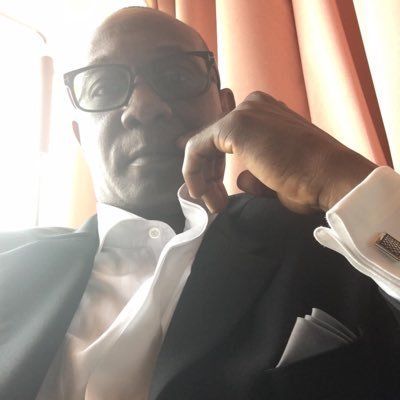
One of the things I try to do as a writer is to read widely and to learn something from every other writer I can find. Fortunately, the writing community is strong, and there are plenty of people willing to share with me and teach me new perspectives and techniques. As part of that community, I’m doing a series of occasional interviews with other writers across a variety of markets and genres. My interview today is with science-fiction author T.O. Burnett, who has self-published two books in his Sapien series, available at Amazon . You can find out more about him and his writing at his website , or by following him on Twitter at @AuthorTOBurnett . Read on to find out about his writing process as well as some great advice! DAVE: Tell me a little bit about your writing journey. When did you start? What was your creative spark, so to speak? T.O.: I started my first manuscript in December of 2016. I had been wanting to write for years prior to that, but finally got a spark from a conversation I had with a coworker/good friend about religion which, ultimately, ended with us discussing the origin of mankind and whether or not we (humans) were aliens on earth. I took the position that we were, and that's how my story was born. So my Sapien series is really a discussion about religion disguised as science fiction. DAVE: It's always neat when a conversation becomes a story, and I feel like answering those "what if?" questions have led to a lot of great sci-fi. T.O.: Yes, what appeals to me about science fiction is the creative freedom it allows. Not only does it allow it, it's the staple of the genre. I read sci-fi to see what new ideas the author has and to expand my own imagination. I write it to express my own creativity and to wow my readers. DAVE: What are some of your favorite sci-fi writers, and do you think they influence your style at all? T.O.: I enjoy George Orwell, Isaac Asimov, and Octavia Butler. If any of them influences my style, it would be Orwell, but even that is minimal. I try to be original. I'm actually more influenced by movie directors—George Lucas, conceptually; and Quentin Tarantino, stylistically. I've taken Lucas's approach to worldbuilding, and I've embraced the enthusiasm and freedom with which Tarantino approaches dialogue. DAVE: You know, in my own work, I don't think I've ever thought about Tarantino as an influence, but maybe it's there and I just don't recognize it. My characters do say fuck an awful lot, after all. I can certainly recognize the influence of George Lucas, though. I think just about every science fiction author (to say nothing of every director) has been in sort of a conversation with Lucas. Star Wars was such a seminal cultural event, even those who don't like Lucas's style are reacting to it as they try to write something different or in opposition to it. One of the things Lucas did very well was create a fully realized world, which is something you definitely have with Sapien . Can you tell us a little bit about it? T.O.: Sure. The Sapien solar system mimics the reality of our world. However, instead of being divided by continents, it's divided by planets. Not so ironically, my intent is to plant the seed that our continents actually came from the planets in the Sapien solar system—at least that's the case in my universe. My story revolves around segregation and the problems that come with it, but not blatant racism. They don't stoop that low. The plot is driven by one man's plan to consolidate all races of people on one planet (Earth), so that they could reach the next phase of evolution. DAVE: There's a lot there! You're two books in so far. How many more do you think before you consider the story told? T.O.: We'll see. Right now I'm working on the finale to the Sapien trilogy. Maybe. I'm about 85% of the way through the first draft. But I'm also three chapters into a dystopian novel, which I'm very much looking forward to giving all of my attention. That's actually on hold until I power through the last of the Sapien series. I also have rough drafts for three other science fiction stories done, so there's lots on the horizon. DAVE: That's awesome that you've got so much stuff in the hopper. It's nice to feel that you've got somewhere else to land when you get done with a big project, although I confess that I sometimes wind up taking on too many stories at once. (But don't worry, readers, the three books in The Black Sun Series are already complete.) I'm sure I'm not alone in that. What advice do you have for other writers out there? And me, because I'm definitely looking for all the advice I can get. T.O.: The best writing advice I can give is to write what your imagination shows you. Place your work into a category once it's done. Putting yourself in the box of a specific genre before you start limits you creatively. I would also advise new writers to start with stand-alone novels instead of a series, like I did. Although it allowed me to tell a complete story, it hurt my marketing possibilities. Learn to write on smaller scale projects. If my readers don't like the first book of my series, I can forget about them buying the second or third. They need to see your versatility early on. Give them options. Another piece of advice is to take your time with edits. Don't place time constraints on yourself; those are the enemy of creativity. I actually revised the first two books of my series and resubmitted them because of editing issues. I got some honest reviews that made me take a look at them. That brings up another point: be open to constructive criticism. Realize that not everything is an attack. Look at it with an open mind and fix what needs to be fixed. DAVE: Those are great words of wisdom, particularly where feedback is concerned. I know that it took me a lot longer than it should have to go from a defensive to accepting posture when it came to criticism of my work. I'm glad I was able to finally learn to evaluate, accept, and integrate feedback into my work, because it's impossible to grow otherwise. Thanks so much for having this discussion with me and giving me and everyone else some things to think about. To all the readers, go check out T.O.'s Sapien series!
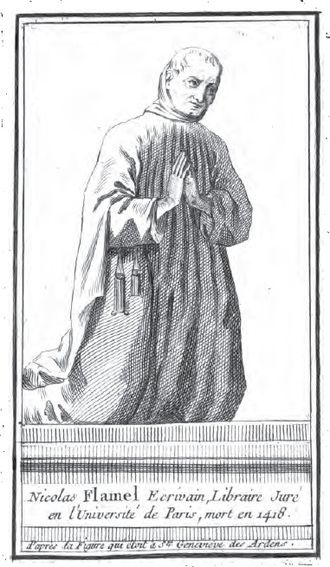
The first time I ever came across the name Nicolas Flamel, it was as a minor character and plot point in Harry Potter and the Philosopher’s Stone . I suspect, if you’re reading this and you’ve heard of him, that’s where you first encountered him as well. Interestingly enough, he was a real person. He was born in Paris sometime in the 1330s and died in 1418. He and his wife Perenelle accumulated a decent sum of money during their lives through a combination of his two manuscript shops and the money she brought to the marriage as a widow twice already. He lived a long, decent life and is buried in Paris. You can even visit one of his houses which still stands in Paris, albeit as a restaurant—in a city as old as Paris, if you were to preserve the house of every historical figure, there’d be nowhere to live. But then, that’s the curious thing about Flamel. He’s not really a “historical figure,” in the sense that he discovered or did much of anything. He wasn’t a jurist or philosopher or scientist or king or even nobility at all. In fact, the only reason anyone knows his name is because of something he most certainly did not do—achieve immortality by discovering alchemy’s ultimate secret, the Philosopher’s Stone. The whole idea of Flamel as an alchemist didn’t even begin until almost two hundred years after his death, when a pair of texts purported to be copies—the originals conveniently lost to history, of course—were published by opportunistic publishing houses in the early 1600s. Alchemists throughout Europe took the texts as true, though, and even Sir Isaac Newton cited Flamel’s supposed achievement in his diaries. While no one in four hundred years has been able to replicate what Flamel supposedly did in the texts, it hasn’t stopped his reputation from growing. In the 19th century, Flamel’s legend burst back onto the scene—Victor Hugo mentions him in The Hunchback of Notre Dame , and references to Flamel appear as part of Masonic rites. But the revival hardly stops there. In the 20th century, he’s entangled with the Templars and Rosicrucians in Umberto Eco’s Foucault’s Pendulum and is listed as a Grand Master in the Priory of Sion, a hoax secret society created by a French conman that nonetheless went on to play a prominent role in Dan Brown’s The Da Vinci Code . After that, of course, came his inclusion in JK Rowling’s Harry Potter and the Philosopher’s Stone , which injected him into popular culture like never before. Since then, he’s been the subject of novels and appeared in manga, anime, and video games. In a certain sense Nicholas Flamel is immortal. His immortality, of course, is made that much richer by the irony that the very impossibility of the claim is what ultimately made the claim true. And perhaps that’s the real hidden knowledge Flamel’s legend imparts, a truth more kabbalist than chemical: that words are more powerful than reality—as they might have put it, that rhema is superior to pragmatikótita . Words, then, are the truest alchemy. It is words that transmute objects and transform reality in a way that mere science cannot. Maybe that’s what the alchemists really learned from Flamel, that words hold the true power in the world, for only they can create and destroy, limit ideas or free them, paint our horizons with limits—or poke holes in them with possibilities of worlds not our own.
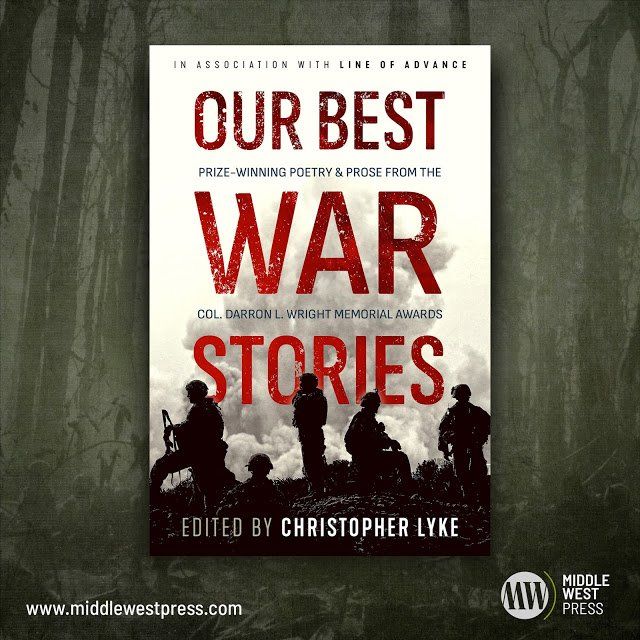
My short story, "The Stay," which won the Darron L. Wright Award in 2016, is finally being published in print! Thanks to the good folks at Middle West Press, it's appearing in Our Best War Stories . I'm very proud of this story, and it's a very personal one to me. It isn't my story of being in Iraq, but it is certainly a story of what being in Iraq was like, and it's one of the many ways I've tried to come to grips with what I did and saw, and with how it changed me and everyone else in ways good and bad. Although I tend to write genre fiction (so far), literary fiction is my first love and what I'd love to be able to write well. This story is probably me at my best, and if you check it out, I hope it speaks to you.

Right now, in Fairfax County, Virginia, my family faces the same choice that a lot of families do across the country: do we send our kids back to school in the fall or not? This, of course, isn't a new question. Across the country, hundreds of thousands of families have been asking themselves that question for months. We all want to do the "right" thing. We all want to do the "responsible" thing, but the "right" and "responsible" answer isn't easy to determine. There's a good reason for that. And that's because the real question isn't what's the "right" or "responsible" answer, but really who do we care about doing "right" for, and to whom are we "responsible?" The American Pediatric Association tells us what most parents already know: online school doesn't provide the quality of education, social and mental development, or sense of immersive learning that in-person schooling does. Every parent wants their children to have access to the best educational and social opportunities available. No parent wants their six-year old to go to first grade virtually after they already had to spend half of their kindergarten year--a year which is supposed to be focused on socialization!--"going to school" through a screen. No one wants their high-school senior's final year to be spent behind a computer. Everybody whose child is starting a new school this year is worried about how their kids will make friends or fit in or develop new interests. Youth is fleeting. For most of us, there is only a short window in life where we can ever be on a football team or a cheerleading squad or play an instrument in the band or be the editor of a school newspaper. It's natural that we as parents want to preserve those opportunities for our kids, natural that we want them to be able to interact with their peers. It's natural that we would want them to go back to school, even if but for a few days a week. Who wouldn't want what is best for their children? On the other hand, the Coronavirus is very very real. It may not effect children as much--of course, we wouldn't really know, since most kids have been kept quarantined and haven't had as much opportunity for exposure as adults--but we know it can . It's broken out at summer camps in Missouri and daycares in Texas. It's longterm effects on young bodies aren't fully known or understood. Not only that, but plenty of kids have parents or grandparents or siblings at home that are at very high risk for the virus. What about teachers, many of whom have their own health problems or share homes with those who do? If we send our children back, sure, they might be fine if exposed to the virus--just feeling run down and coughing for a week or so--but what about their friends, and their friends' grandparents? What about their teachers? Youth is fleeting. Losing a parent or a grandparent or even a teacher makes it that much more fleeting. The risks are high, and not just for the children, but for all the community around them that makes a childhood . Who wouldn't want what is best for their community? And that leads me back to the title of this blog post--there are no clean hands here. No matter which choice we make, it will be the "wrong" one for someone. No matter how we measure our responsibilities, it won't be possible to be "responsible" for all parties concerned. I've faced choices like this before, at other points in my life, and I'm sure I'll face them again. In some sense, we face choices like this all the time in life, although usually the stakes aren't quite as high--or as stark. But what's especially maddening about this time is that it doesn't have to be this way. This decision facing parents that has parents weighing what's best for their kids against what's best for their kids' favorite teachers, that has parents in multigenerational homes weighing what's best for their children against what's best for their own parents, never had to happen . Elsewhere in the world, kids can go back to school without fear of mass community spread. Elsewhere in the world, where the government took prudent measures and spoke with one voice and leveled with their populations about the risks and dangers, the virus is either beaten or in retreat. It did not have to be this way. But we chose differently. The government--that is to say, we the people --made our choices early on, and now we live with the choices that follow, and no matter how often we wash our hands, they won't be clean.
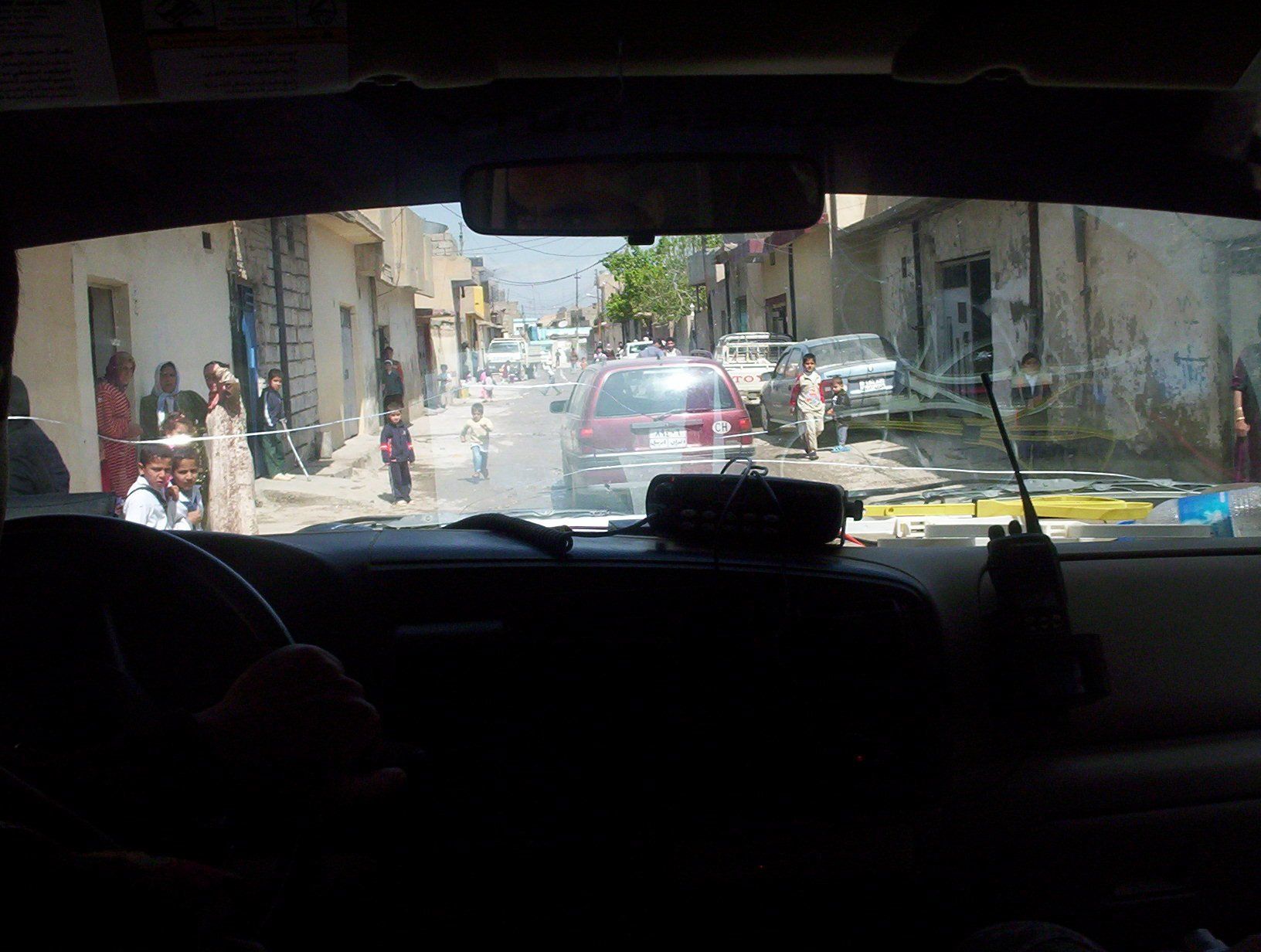
As a writer, I try to think of every experience as a story, as fuel for the creative fires, so to speak. Sometimes that's difficult because the experience is too painful or fresh to really grasp as anything but how it feels right then and there. Sometimes it's difficult because the experience is too boring or mundane--filling out your taxes is tough fodder for creativity. But sometimes I have an experience that is so surreal, so out-of-the-ordinary, so like something out of fiction, that I can feel the story writing itself even as the event happens before my eyes. I've had a number of these experiences--good and bad--courtesy of my time in the Army, and today for some reason one in particular has been on my mind. Let me set the stage with a photo I took during the occasion:

This first blog post is two things--a thank you note and a history lesson. First, the history: I started writing The Damsel around 2015 or so, based off characters I'd been writing on and off since high school (which was a lot longer ago than I'd like to admit). I finished a good draft in 2016 along with two other Black Sun novellas, and began querying. Since then, I've written a bunch of short stories, essays and a few other things I hope to be able to share with readers in the future. All the while, I've been querying The Damsel-- and revising it. Finally, in late 2019, Sam and BK over at Kyanite Press said they were interested and asked for the full manuscript. With my fingers crossed, I sent it in. After a few nerve-racking months of vascillating back and forth between thinking I was definitely going to sell The Damsel and believing I would never sell it, I got the acceptance letter. Now, the thanks: Writing is, in general, a solitary activity--like, say, tennis. But, like tennis, no writer improves or wins on their own. I went through dozens of drafts before I got a final product good enough to query, and plenty more drafts after that making it that much better--each draft based on great help and feedback from fellow writers. Every writing partner and every writing group I've ever been a part of has a hand in this, and some of you have been so invaluable that I'd never have made it to this point without you. Finally, a special thanks goes to Nick, who started me on my writing journey years and years ago, and without whom there would be no inspiration for The Damsel . Lastly, to all you writers out there who haven't quite gotten over the hump: good luck, and keep writing.
